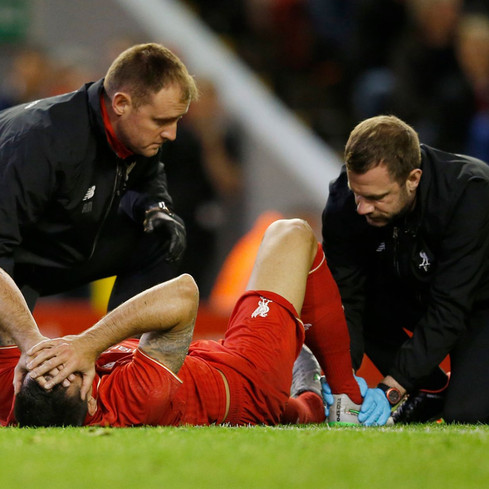How painkillers are killing game time
- Zamaan Qureshi

- Oct 16, 2017
- 3 min read

Liverpool Football Club have historically had a tough time with injuries to important players at important times - as have many clubs around Europe. Steven Gerrard namely, battled with injuries to make sure he captained the side every week. More recently, Daniel Sturridge - extremely injury prone - has suffered long periods sidelined due to knocks or substantial injuries.
Pain and injury are things that all athletes around the world have had to face whether it be the professional or amateur level. 20th century innovations in medicine and biology have allowed humans to build drugs that can numb the pain that is felt from injury. By no means are painkillers a cure for a cause but - as for athletes - it allows them to go through their match, race, or game with less or no pain, for that period of time. John Brewer, a professor of applied sports science at St Mary’s University was quoted in the Guardian this month talking about the topic saying that players taking frequent painkillers just to get through games is “probably more common than people realize".
Liverpool's Dejan Lovren is at the forefront of the issue. By no means is Dejan Lovren a fan favorite around Liverpool and Anfield, at the moment. Increased criticism of the center-half has lead him to disable the comments section of his Instagram page due to continued harassment by unhappy fans. Despite the criticism, Lovren is still Jürgen Klopp's second choice center-half, just behind Joël Matip. The Croatian has been routinely selected alongside Matip throughout the course of the season in both the Premier League and Champions League competitions. A lack of options
for Jurgen Klopp has lead him to select Lovren week in-week out to play for the side.
Most recently, Lovren spoke to multiple UK news outlets saying he is taking five painkillers to just to play each match. A number of painkillers that has seen the man he essentially was bought to replace at Liverpool's career end prematurely. Daniel Agger, the Danish center-half, who captained Liverpool on a number of occasions in the absence of Steven Gerrard or Luis Suarez. Agger was a fan favorite and scored a number of goals during the 2013/14 run in for the Premier League title for Liverpool that all collapsed at the end of the season. In his final years of his Liverpool career, Agger was quoted saying that he played his matches at 70% - 80% match fitness and took multiple painkillers to numb his back pain. Now Agger suffers from constant back pain and struggles with a prolapsed disc. Agger has spoken out to many of his fellow footballers and athletes urging them to take "a pill or two less." Agger joined his boyhood club Brøndby and ended his career at age 32 due to continued problems in his back.
So the message sent by Agger and his fellow suffering veteran athletes: lose some of the painkillers and get treatment. The trend tends to be that when the painkillers wear-off after a match, race, or game that the athlete is in worse condition that he or she was in before, because the problems can be aggravated and without feeling pain, the bodies natural response (pain) is not expressed. "Medical journal BMJ revealed high levels of anti-inflammatory use among players. Of 736 who took part, 54.2% took anti-inflammatories and, as the stakes got higher in the knockout rounds, the use of medication to get through games grew" (Guardian). A staggering statistic that outlines how common and widespread the problem of painkillers is. While other athletes in different sports play more or less routinely, footballers play matches every 3-7 days so the increased amount of painkillers in footballers is staggering. While short-term relief for a match may allow for 90 minutes, the fact of the matter is that painkillers are no solution and are ending careers early. As for Dejan Lovren, Liverpool fans would like to see him dropped for a better center-half, but the club has yet to acquire the services of a new center-half. In the meantime, fans of the Reds will stick with Lovren for now, but it may be in everyones best interest if he took some time out to fix his injury issues after a new acquisition is made - likely during the winter break.
Source: "The drugs don’t work: Liverpool’s Dejan Lovren takes risks with painkillers" - Guardian Article












Comments